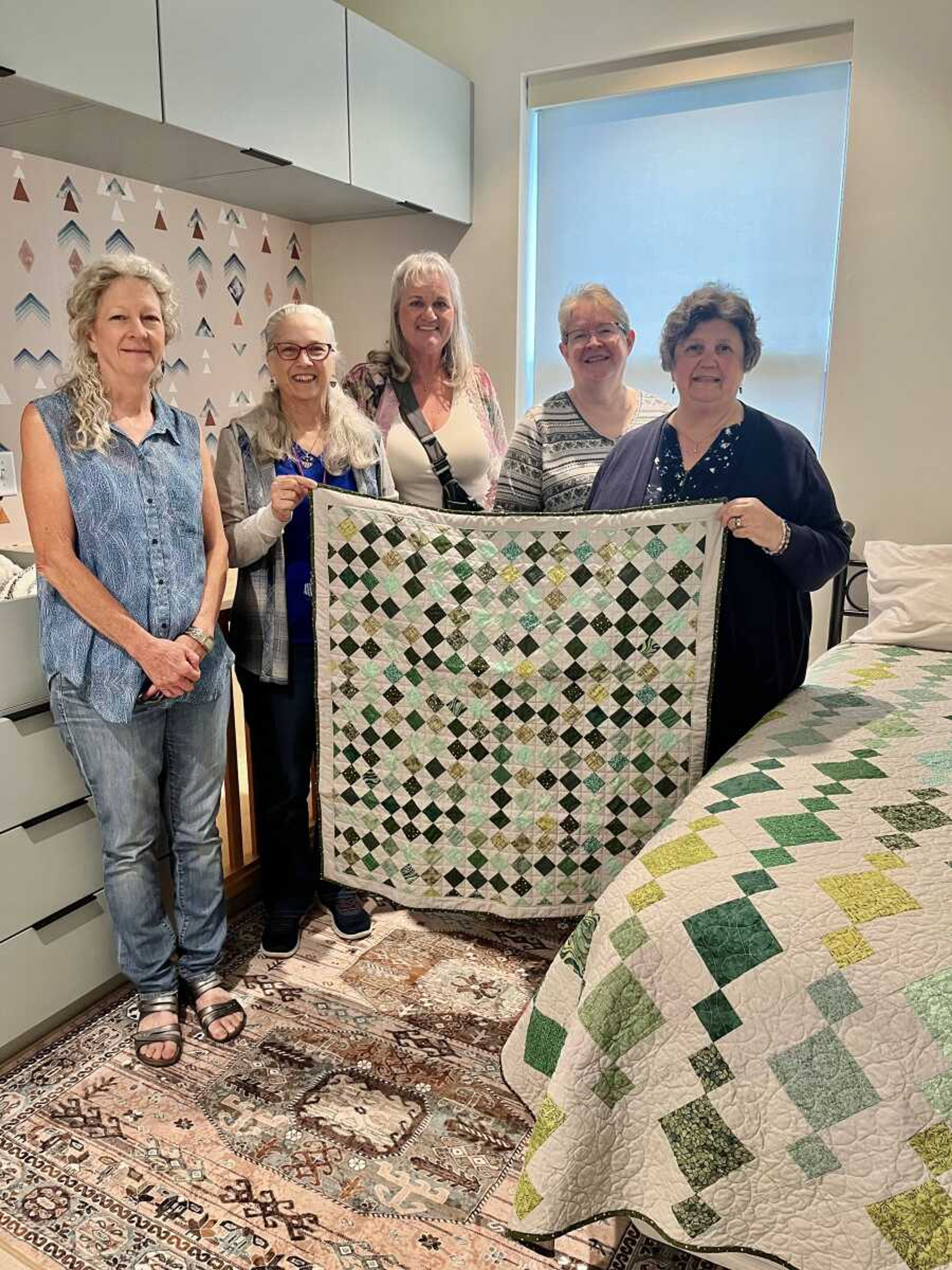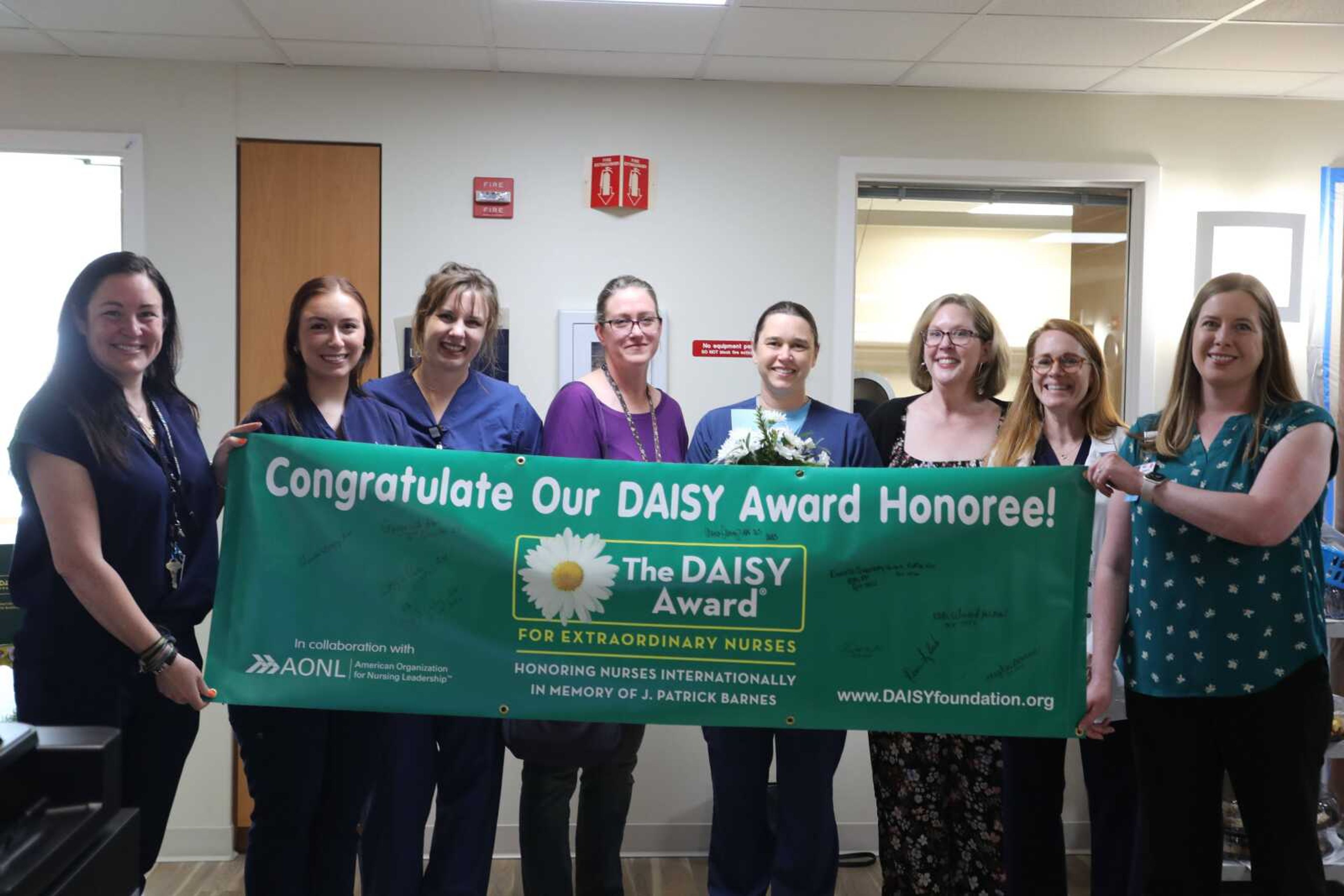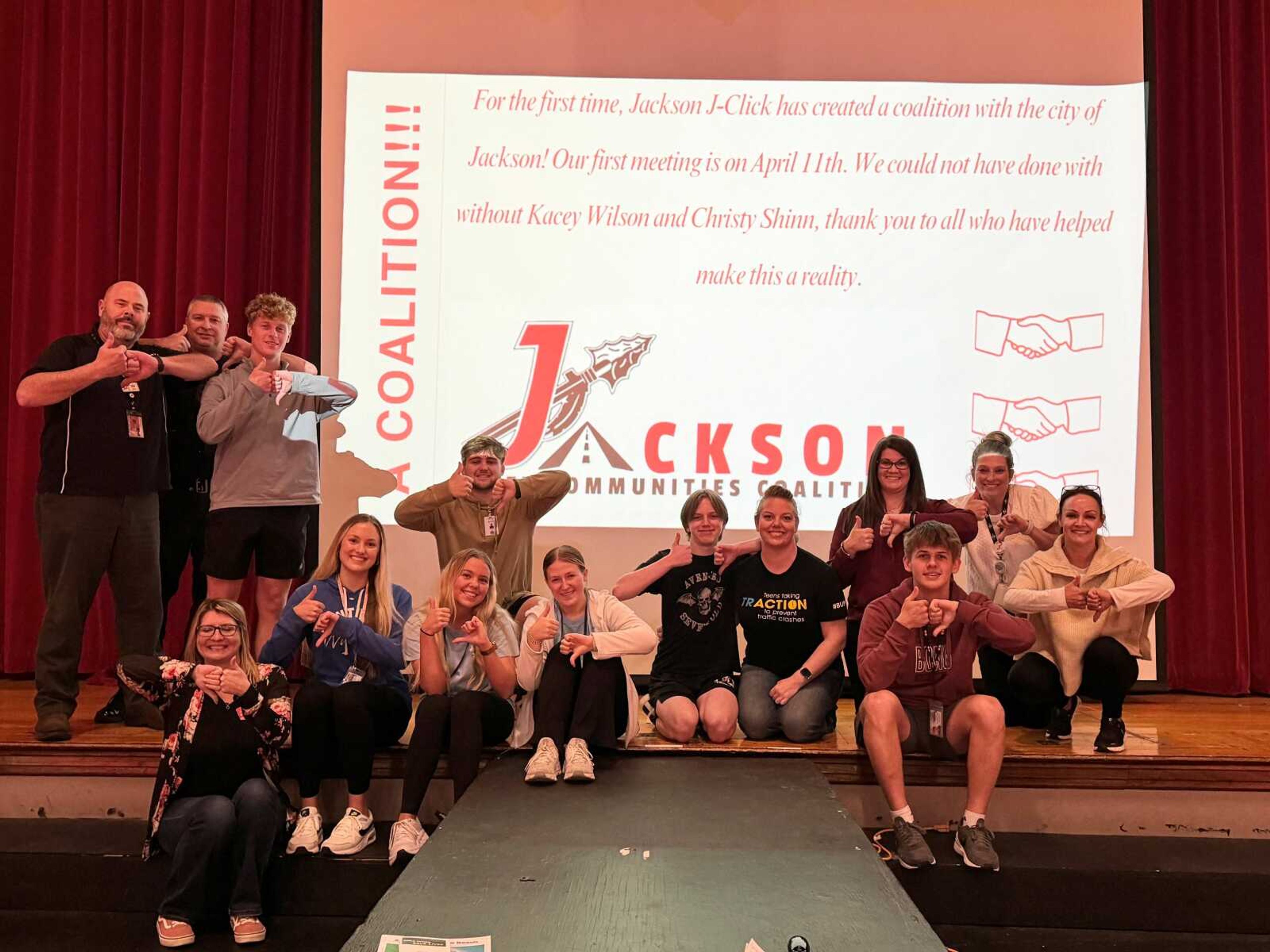1140th simulates chemical attack as part of Wappapello training exercise
WAPPAPELLO, Mo. -- Almost simultaneously, there is an alarmingly loud pop, followed by the sudden appearance of a suspicious white substance hanging in the air. The Missouri National Guard humvee jerks to a halt and four Citizen-Soldiers hop out and quickly tug on their gas masks before speeding toward a decontamination area that has been set up nearby...
WAPPAPELLO, Mo. -- Almost simultaneously, there is an alarmingly loud pop, followed by the sudden appearance of a suspicious white substance hanging in the air.
The Missouri National Guard humvee jerks to a halt and four Citizen-Soldiers hop out and quickly tug on their gas masks before speeding toward a decontamination area that has been set up nearby.
This scenario was repeated again and again on April 10, as members of the Cape Girardeau-based 1140th Engineer Battalion's Headquarters Company went through chemical, biological, radiological and nuclear, or CBRN, training at the Guard's Wappapello Training Site in Southeast Missouri.
Forty-seven Guard Soldiers went through the training at the 1140th's April drill, said Staff Sgt. David Hudson, the unit's training noncommissioned officer. They drove humvees through a wooded area, not knowing when the simulated improvised explosive device was detonated and the chemical agent -- actually baby powder -- would be sent shooting into the air.
"They needed to be ready," Hudson said.
When the simulated IED was activated, the Soldiers were already wearing their MOPP (mission oriented protective posture) gear. Then they put on their gas masks and drove their vehicles to the decontamination station to make sure their uniforms, bodies and vehicles were contaminant free, Hudson said.
"At the decon area, there were eight stations set up that they went through to get themselves decontaminated," Hudson said. "We basically went over it with them and showed them how they would decontaminate themselves in a real-world situation."
Because, Hudson said, in the Missouri National Guard, you never know when such knowledge would become useful and potentially life-saving.
"You truly never know," Hudson said. "We could be out trying to help someone and then, all of a sudden, terrorists have set up a chemical attack like they've done in the past. We have to be prepared to handle any situation.'
That's why it's so important for every military man and woman to know how to react in these situations, Hudson said.
"When you've been in the military for so long, it becomes a case of 'if you don't use it, you lose it,'" he said. "For our older Soldiers, this is a refresher and will sharpen their skills. At the same time, the younger ones that just come out of basic and AIT, they know a lot about it. The younger ones help us to catch up and get up-to-date."
Spc. Reba Colony of Cape Girardeau was recently qualified as an NBC (nuclear, biological, chemical) instructor and she went over decontamination with the Soldiers, along with Pfc. Yarelis Soto, Staff Sgt. James Pulliam, Sgt. Jesse Southern and Spc. Natalie Welker, who are also NBC qualified instructors.
Colony said decontamination after a chemical attack is just as important as the reaction to the attack.
"When you get attacked chemically, the agent will stick to your clothes," she said. "No matter what area you walk into, if you're contaminated, that area becomes contaminated."
The Soldiers decontaminated in stages during the training, decontaminating their boots, gloves, masks and heads so, Colony said, "when they move on to the next stage, they're not dragging it with them on their feet. Each phase becomes cleaner and cleaner until you come to the end of it. That way, once you're finished, you're no longer contaminated and you're not putting anybody at risk."
The Soldiers who went through the training at Wappapello said they understand the importance of the training.
"Well, it's important for us to go over all of our training periodically," said Staff Sgt. William Mier of Freemont. "It's like anything in life. It's a use-it-or-lose-it kind of skill. If we don't retrain periodically, we forget how to do it. There are a lot of hazards and risks out there. Who knows when we might need this? I don't care to speculate on why that might occur, but we need to be prepared for the worst all the time. There are people out there who don't like us."
For more information about the Missouri National Guard, please call 1-800-GoGuard or visit www.moguard.com.
-30-
For more information about this release, please contact Scott Moyers at (573) 339-5796 or e-mail him at scott.moyers1@us.army.mil.
Connect with the Southeast Missourian Newsroom:
For corrections to this story or other insights for the editor, click here. To submit a letter to the editor, click here. To learn about the Southeast Missourian’s AI Policy, click here.










